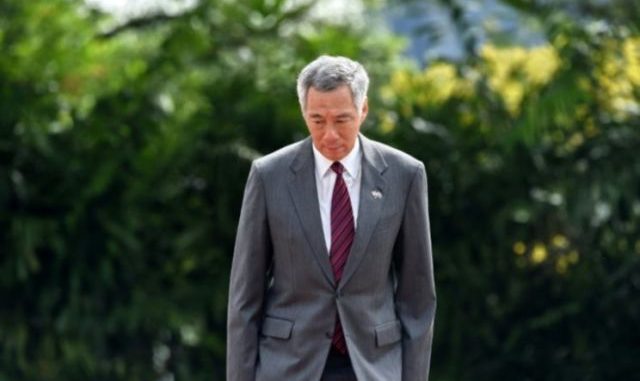
Enough is enough. The time has come to reject the notion that this is just an ugly family fight and start looking at it as an issue with huge implications for Singapore as a nation.
It is no more about whether the late Prime Minister Lee Kuan Yew’s house at 38 Oxley Road should be demolished. The person being targeted is not only a Lee family member. Lee Hsien Loong is also the Prime Minister of the country. The charges levelled at him are very serious: abuse of power, nepotism, conflict of interest, dishonesty.
And these allegations have not been made by dissidents, activists or opposition members who might have an axe to grind. These are being made by the founding father’s flesh and blood who are also products of the system.
For PM Lee’s younger siblings – Lee Wei Ling and Lee Hsien Yang – to charge that their brother had “misused his position and influence over the Singapore government and its agencies to drive his personal agenda” is unsettling, disturbing and, more important, scary.
PM Lee has responded by releasing an edited summary of statutory declarations he had made to a ministerial committee looking into the options for 38 Oxley Road and asking if his sister-in-law and a lawyer, Lee Suet Fern, had explained to Lee Kuan Yew the details of the seventh and last will and if his father had given specific instructions to reinsert a clause to demolish the property.
Even the formation of this committee, led by National Development Minister Lawrence Wong, is shrouded in mystery. When was it formed, what were its terms of reference, who are its members, will its deliberations be made public? No answers so far.
Where the allegations get murky and troubling is the contention of Wei Ling and Hsien Yang that PM Lee had used his position to settle a family fight by getting documents from Minister Wong, which were then handed to his personal lawyer, Lucien Wong, to bolster his case. Even worse was the innuendo that Lucien Wong was appointed the Attorney-General soon after the Oxley Road property dispute.
Specific allegations like these by Wei Ling and Hsien Yang go against the very heart of what Singaporeans believe their country stands for. It is a place that not just delivers economic growth but also has a system that is corruption-free and law-abiding. In one fell swoop, both of them have left the edifice that the first PM built, nurtured and vigorously defended in ruins.
PM Lee cannot just deny the allegations and throw back more accusations. He has either to take his siblings to court or set up an independent panel to get to the bottom of this scandal. Both routes are not new in Singapore. Those who defamed political leaders have been sued till they lost their pants. Public inquiries, though rare, have been held with the one on the Little India riot taking place just three years ago.
There is no doubt that PM Lee is in a moral dilemma. He is the first born, and after his father’s death on 23 March 2015, has a responsibility to look after the well-being of his brother and sister. But then he is also the Prime Minister and has the responsibility to an entire nation. Deputy PM Teo Chee Hean, who is acting as PM since Lee Hsien Loong is on leave, tried to contextualise the problem by saying that Singapore is facing “so many issues, problems and challenges…We need to focus and work on them”. But there is no bigger problem than PM Lee’s credibility, which has been questioned by none other than two of his closest family members.
The cynical Singaporean will say it is difficult to find truly independent citizens to sit on this panel. “Looking for people to be members of this panel is the hard part, given the divisive nature of the case,” one Facebook post said. That is a defeatist approach to take.
What the Lee siblings have been toing and froing about is not just about their father’s house. In the context of the bigger picture, it is about Singapore and what kind of Singapore its citizens want to call country. The Rubicon has been crossed. PM Lee’s credibility has been questioned. And Singaporeans need to know what is the truth.
P N Balji is a veteran Singaporean journalist was formerly chief editor of Today, as well as an editor at The New Paper, and currently a media consultant. The views expressed are his own.
Source: Y! News
